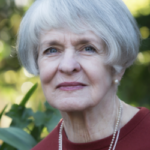ASIO Director-General is under-reported when he says anti-Islamic groups also threaten Australian security.
‘Incredible’ is a word over-used in the media when all they mean is ‘very’. So when something truly unbelievable happens, we have no description ready for it. In recent days, while American and Australian leaders were debating their various degrees of credibility, a revelation from the Director-General of ASIO, Duncan Lewis, was ignored by the mainstream media except the Guardian online and AAP (Reclaim Australia in Asio’s sights, intelligence chief tells senators, 19 October 2016). But what he said was close to incredible, at least for those with long memories of the domestic spy agency.
Lewis’ predecessor, former diplomat David Irvine, was reported the next day (SMH 20 October: 6) repeating what he often said in the job, that terrorism and cyber threats keep him awake at night. As well they might: Man Mohan Monis was plotting the Lindt cafe ‘terrorism’ event on his watch, and unfortunately nothing was done to stop him. Irvine told a briefing organised by Nuix, a cyber security company, that cyber sabotage was now in the hands not only of governments, but of non-state actors as well. Governments, he said, fail to do thorough threat assessments on their own staff, let alone finding potential miscreants in the general population. He urged Australia to develop a much stronger cyber-security industry, over and above the proliferating national security industry we already have.
A technique of people in jobs like Irvine’s is to frighten audiences with the security threats they know about, and more that they don’t, leaving not a dry seat in the house. Then they smoothly assure everyone that it’s all in good hands, and that our sleep-deprived officials will continue to watch over us as long as their agencies keep getting plenty of resources and are given the right powers. This has worked: ANU polling shows that more than half of us are concerned about Australia being a terrorism target and want greater preventive measures against it (Greg Austin, The Conversation, 18 October 2016).
Austin observes that in 14 years since 202 people died in the 2002 Bali bombing (88 of them Australians), terrorist attacks overseas have claimed some 110 Australian lives – significant, but few by comparison with other countries. Only three people have been killed in terrorist attacks in Australia in the last two decades. The three who died in Australia’s first ‘terrorist’ attack, the Hilton Hotel bombing in 1978 (where the notorious Roger Rogerson of NSW Special Branch was on the case) may not have been the victims of terrorists at all (Rachel Landers, Who Bombed the Hilton? 2016). So the probability of Australians dying at the hands of terrorists is much less than of being killed in a traffic accident, in one of the shootings or knife fights that occur almost daily, or if you are an Australian woman or child, in domestic violence.
If we are worried about terrorism, might we need to consider it taking other forms? A threat surprisingly proposed by ASIO’s Lewis to a Senate committee on 18 October comes from radical anti-Islamic organisations, particularly Reclaim Australia, which he said was prepared to resort to violent tactics against pro-Islamic groups. In August, counter-terrorism laws were used for the first time to charge a man, affiliated with Reclaim, with allegedly collecting or making documents to prepare to terrorist acts. The threat to citizens from such groups – which may also include the Q Society, Australian Defence League, Australia First, One Australia, Rise Up Australia, and Unite Australia – has been recognised by ASIO. Incredible.
At Mr Lewis’s next appearance before the Senate committee, he may enlighten us further. If ASIO is investigating – as it should – supporters in Australia of Islamic State, and returnees from Iraq and Syria, it would be good to know what he thinks inspires Muslims in this country to go to defend their fellows in nations which are being attacked by Australia. Senators might ask why it’s illegal for them to do so, but not illegal for the Australian government. They might also inquire about what legal status Australian forces have in Iraq and Syria.
Dr Alison Broinowski, formerly an Australian diplomat, is Vice-President of Honest History and of Australians for War Powers Reform
Tags: ASIO, Duncan Lewis, cyber-terrorism, Reform Australia, Iraq, Syria, Islam




